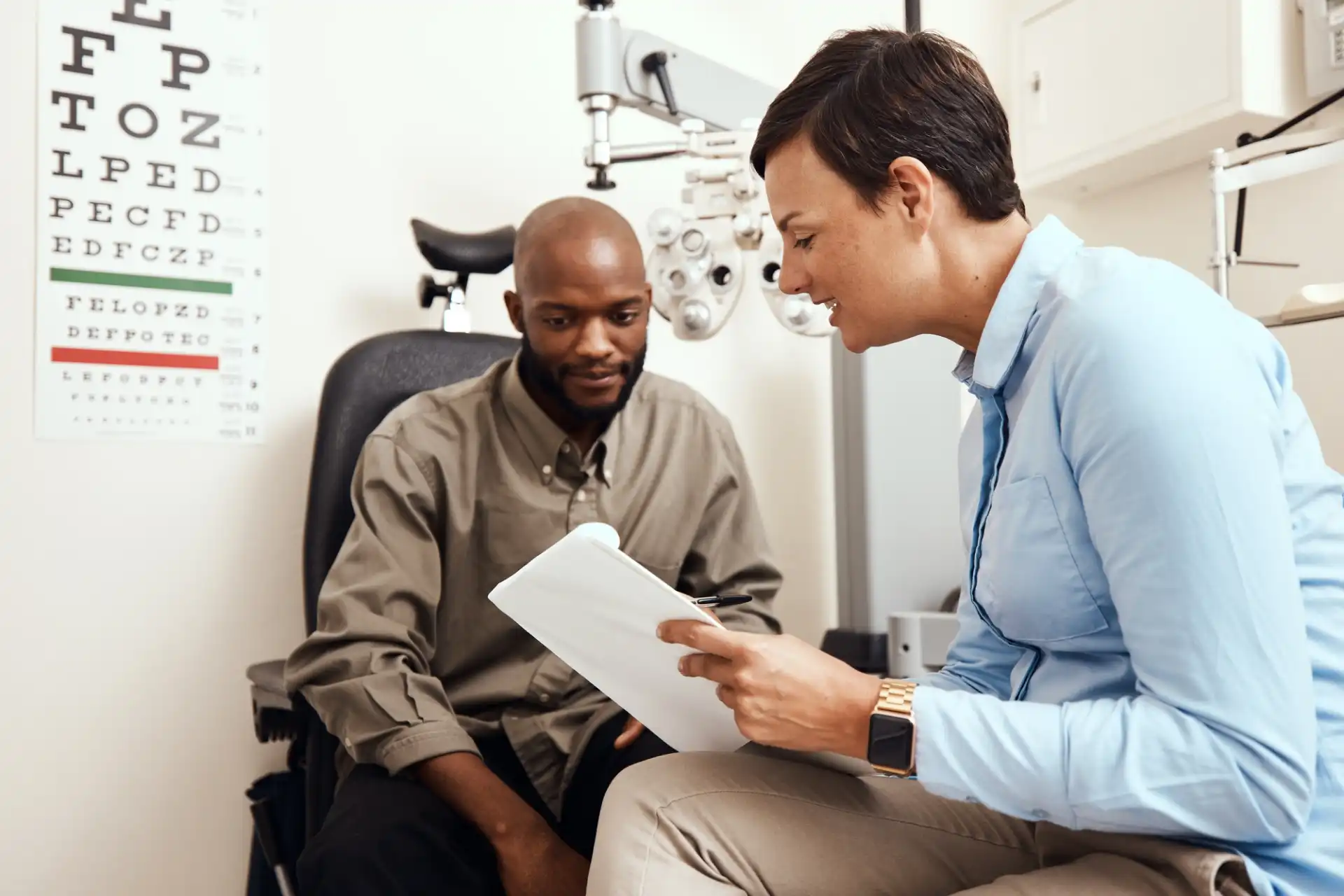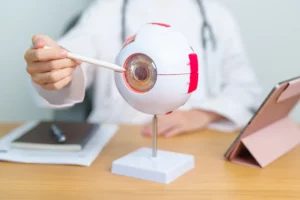How to Get the Most Out of Your Visit
An eye exam is an essential part of maintaining your vision and overall eye health. Whether it’s your first visit or a routine check-up, being prepared can help ensure you get the most accurate results and comprehensive care. This guide will walk you through how to prepare for an eye exam, what to bring, and what to expect during your appointment.
Why Are Eye Exams Important?
Eye exams are more than just a vision check—they’re a critical tool for detecting eye conditions and overall health issues. Conditions like glaucoma, diabetic retinopathy, and macular degeneration can be caught early through a thorough eye exam. For those with glasses or contact lenses, regular check-ups help ensure your prescription is up to date.
How to Prepare for Your Eye Exam
1. Schedule at a Convenient Time
Choose an appointment time when you’re least likely to be tired, as this can affect the accuracy of some tests. Avoid booking an exam right after extended screen time to reduce eye fatigue.
2. Know Your Eye Health History
Your optometrist will ask about your eye health history, including:
- Any vision problems you’ve experienced (blurriness, double vision, etc.).
- Previous eye conditions or surgeries.
- Family history of eye diseases like glaucoma or macular degeneration.
Write this information down beforehand to ensure nothing is forgotten.
3. Bring Your Current Eyewear
If you wear glasses or contact lenses, bring them to your appointment. This helps your optometrist assess your current prescription and compare it to your new test results.
4. List Medications and Allergies
Some medications can affect your vision or eye health. Provide a list of any prescriptions, over-the-counter drugs, or supplements you’re taking, as well as any allergies you have.
5. Prepare Questions or Concerns
Think about any vision issues or questions you want to discuss, such as:
- Trouble seeing at certain distances
- Eye discomfort or dryness
- Screen-related eye strain
- Recommendations for glasses, contacts, or surgery
6. Avoid Eye Makeup
On the day of your exam, skip eye makeup or heavy creams around your eyes. These can interfere with tests or the fitting of contact lenses.
7. Know Your Insurance Details
If you have vision insurance, check what your plan covers and bring your insurance information to your appointment.
What to Expect During Your Eye Exam
1. Case History Review
Your optometrist will discuss your medical and vision history, as well as any specific concerns you have.
2. Visual Acuity Test
This test measures how well you can see at different distances using an eye chart. It determines if you need corrective lenses or an updated prescription.
3. Refraction Test
The doctor will use a phoropter to test various lens strengths and determine your exact prescription.
4. Eye Movement and Coordination Tests
Your eye doctor will assess how well your eyes work together and track moving objects.
5. Eye Health Evaluation
This may include:
- Slit Lamp Exam: To examine the front part of your eye (cornea, iris, and lens).
- Retinal Exam: To check the back of your eye (retina and optic nerve), often using dilation drops.
- Intraocular Pressure Test: To screen for glaucoma by measuring the pressure inside your eye.
Tips for After Your Eye Exam
- Follow Recommendations
If you need a new prescription, update your glasses or contacts as soon as possible. Follow any treatment plans or referrals provided by your optometrist. - Expect Temporary Side Effects
If dilation drops were used, your eyes may be sensitive to light and blurry for a few hours. Bring sunglasses to your appointment and avoid driving if advised by your doctor. - Schedule Your Next Exam
Make a habit of scheduling regular eye exams. Most adults should have an exam every 1-2 years, while children and individuals with certain conditions may need more frequent check-ups.
FAQs About Eye Exam Preparation
Q: Do I need to fast before an eye exam?
A: No, you can eat and drink as normal before your appointment.
Q: Should I remove my contact lenses before the exam?
A: Yes, it’s a good idea to remove contact lenses a few hours before your appointment to ensure accurate testing.
Q: How long does an eye exam take?
A: A comprehensive eye exam typically takes about 30-60 minutes, depending on the tests performed.
Conclusion: A Clear Path to Healthy Vision
Preparing for an eye exam ensures a smooth and productive appointment. By gathering your health history, bringing your eyewear, and listing your concerns, you’ll help your optometrist provide the best care possible.
At Bridgemill Eyecare, we’re committed to your eye health and comfort. Schedule your eye exam today and take the next step toward clear, healthy vision.





